Medical Device Application
Incubators: Enhancing Neonatal Safety Through Precise Weight Monitoring
Incubators are crucial in the care of new-borns, especially for those born prematurely or with health complications necessitating special care. Flintec's sensors offer the precision needed to track the growth and health of these fragile patients.
Types of Incubators
Neonatal Incubators
These devices create a warm, humid, and controlled environment for premature or ill new-borns. They are equipped with advanced features to monitor the baby's weight, temperature, oxygen, and humidity levels. These incubators play a crucial role in managing the administration of essential medications and nutrients and monitoring the development of the infant.
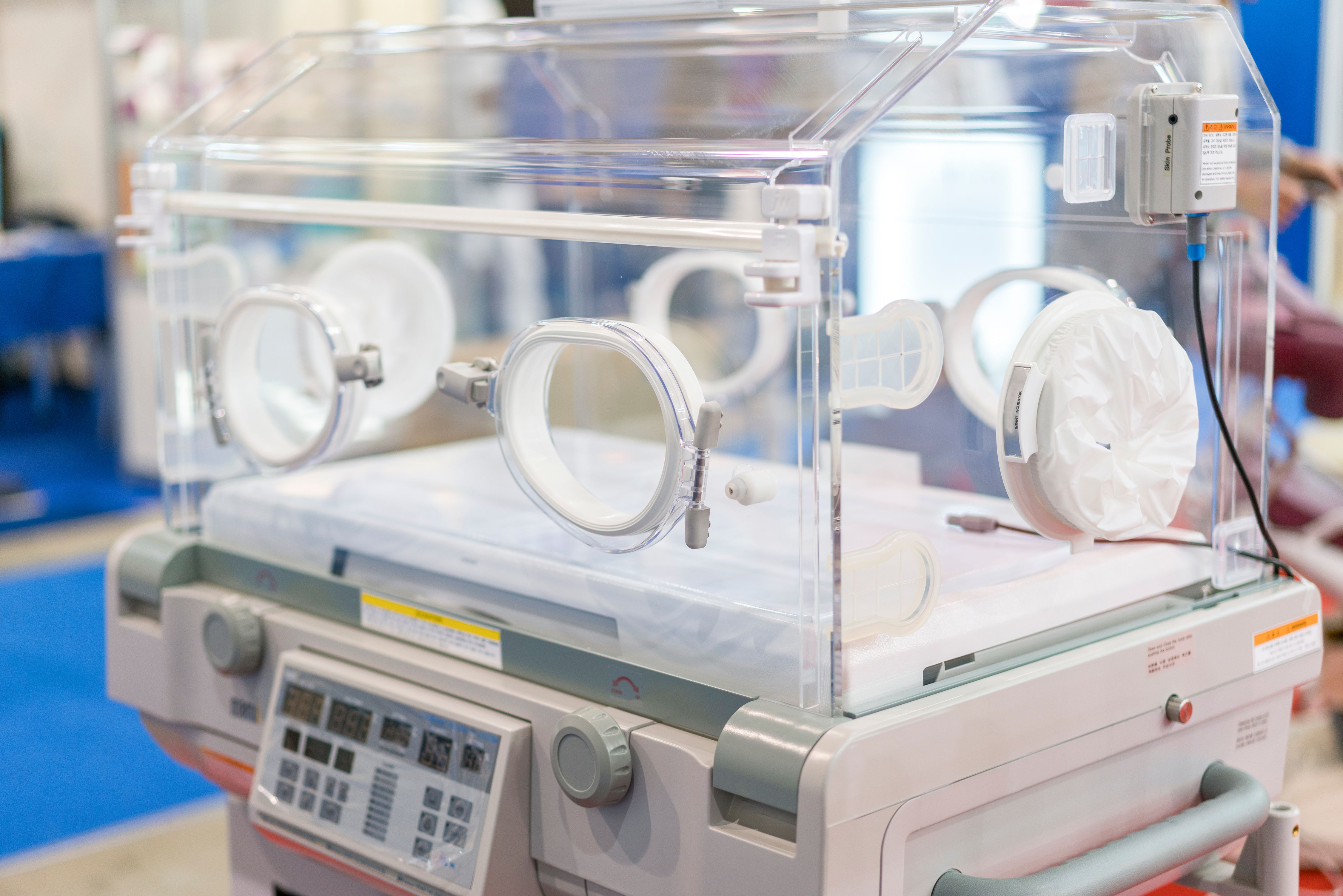
Transport Incubators
Engineered for the secure transportation of new-borns within hospitals or between medical facilities, these incubators are equipped with vital signs monitors, oxygen supply, and other essential features. They are designed to maintain a stable environment during transit, ensuring the safety and well-being of the fragile patient.
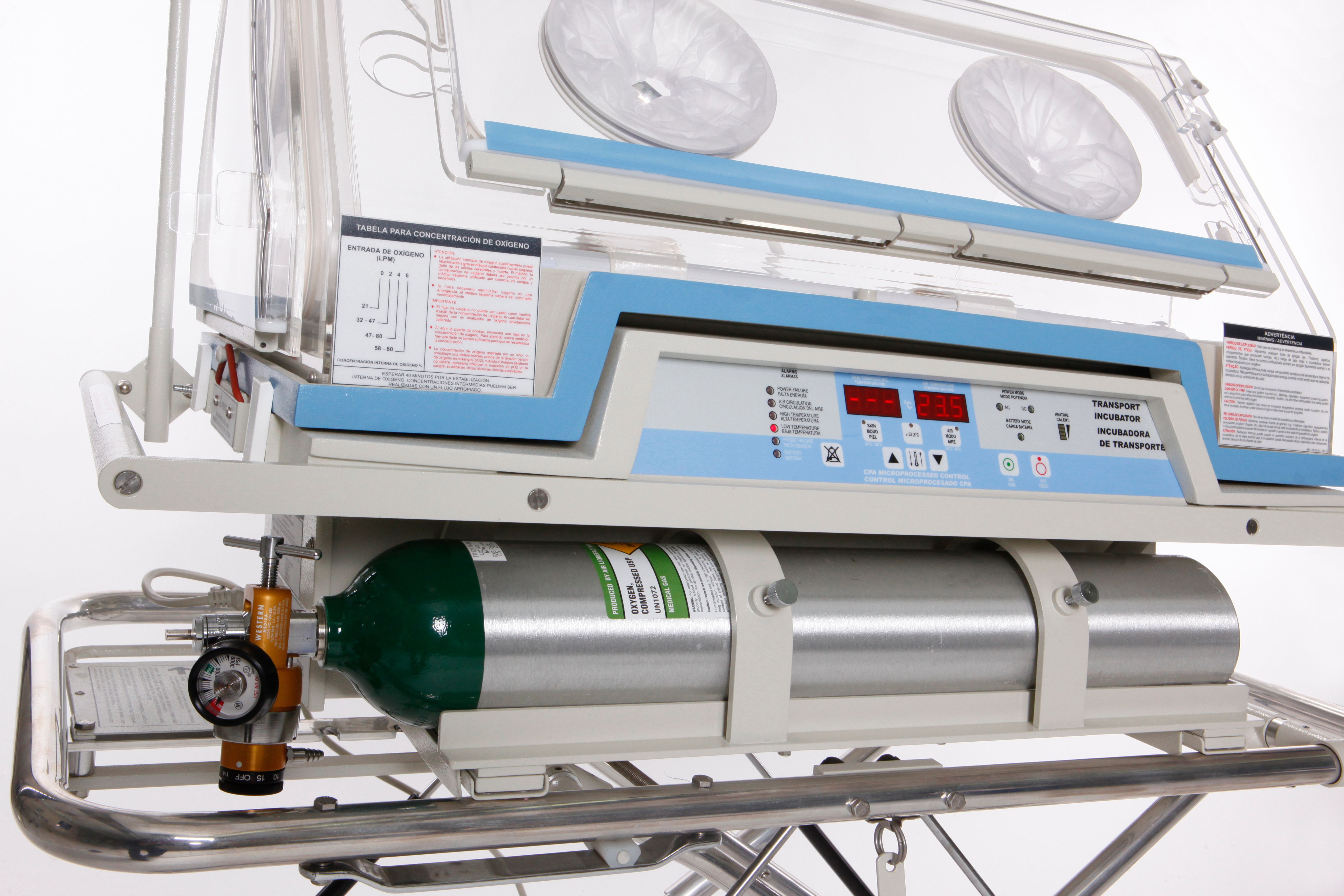
Open Care Incubators
These types of incubators allow easy access to the baby, typically used for infants who require less intensive care or for performing specific medical procedures. They maintain the desired temperature and provide some level of control over humidity and oxygen but are open, allowing caregivers direct access.
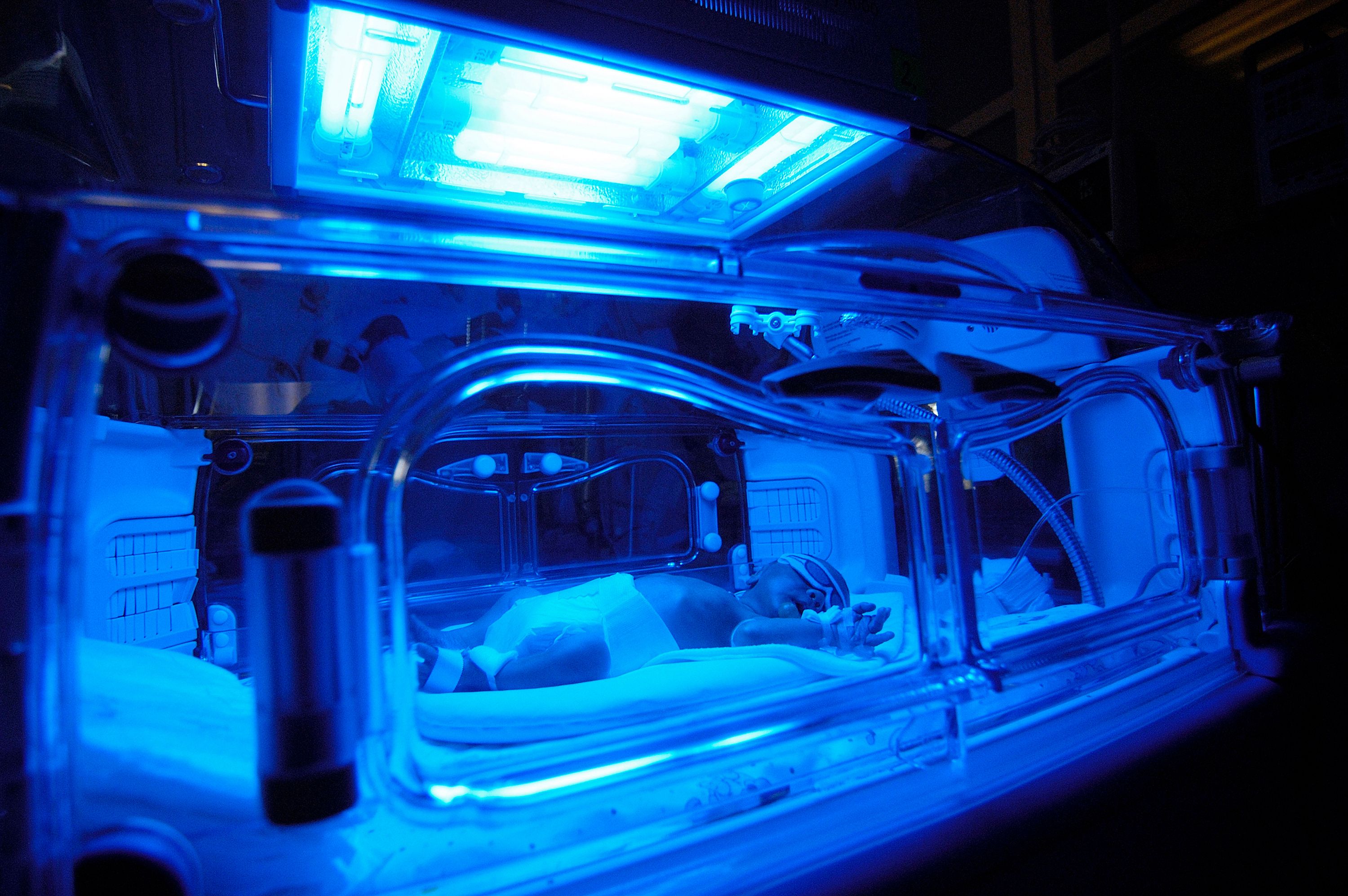
Hybrid Incubators
Combining features of both closed and open incubators, hybrid incubators offer flexibility in neonatal care. They can be switched between closed and open modes, depending on the baby's needs and medical requirements.
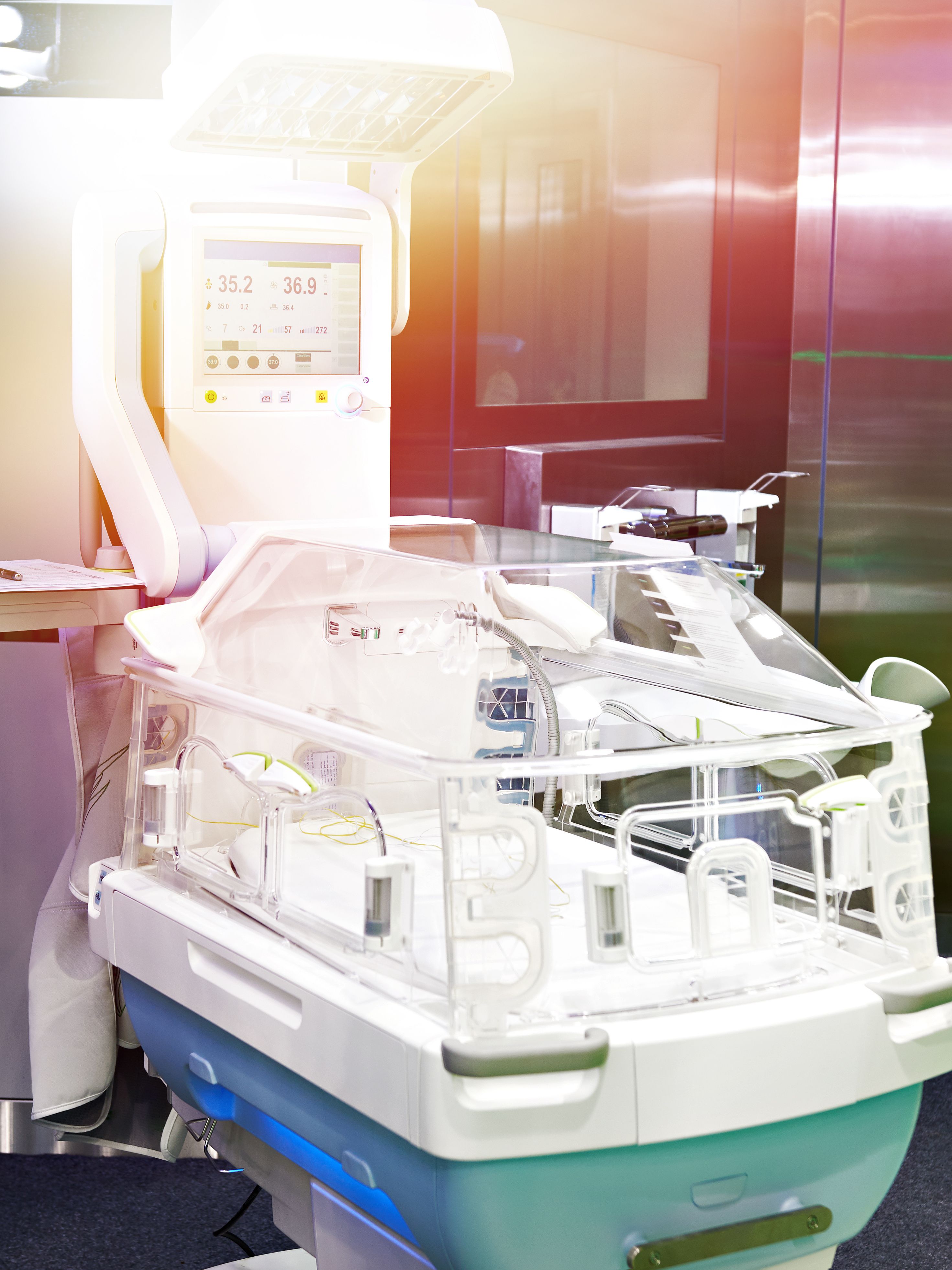
Double-Walled Incubators
These incubators provide more consistent temperature control with a double-wall design, reducing the loss of heat and humidity. They are often used when precise environmental control is vital for the baby's health.
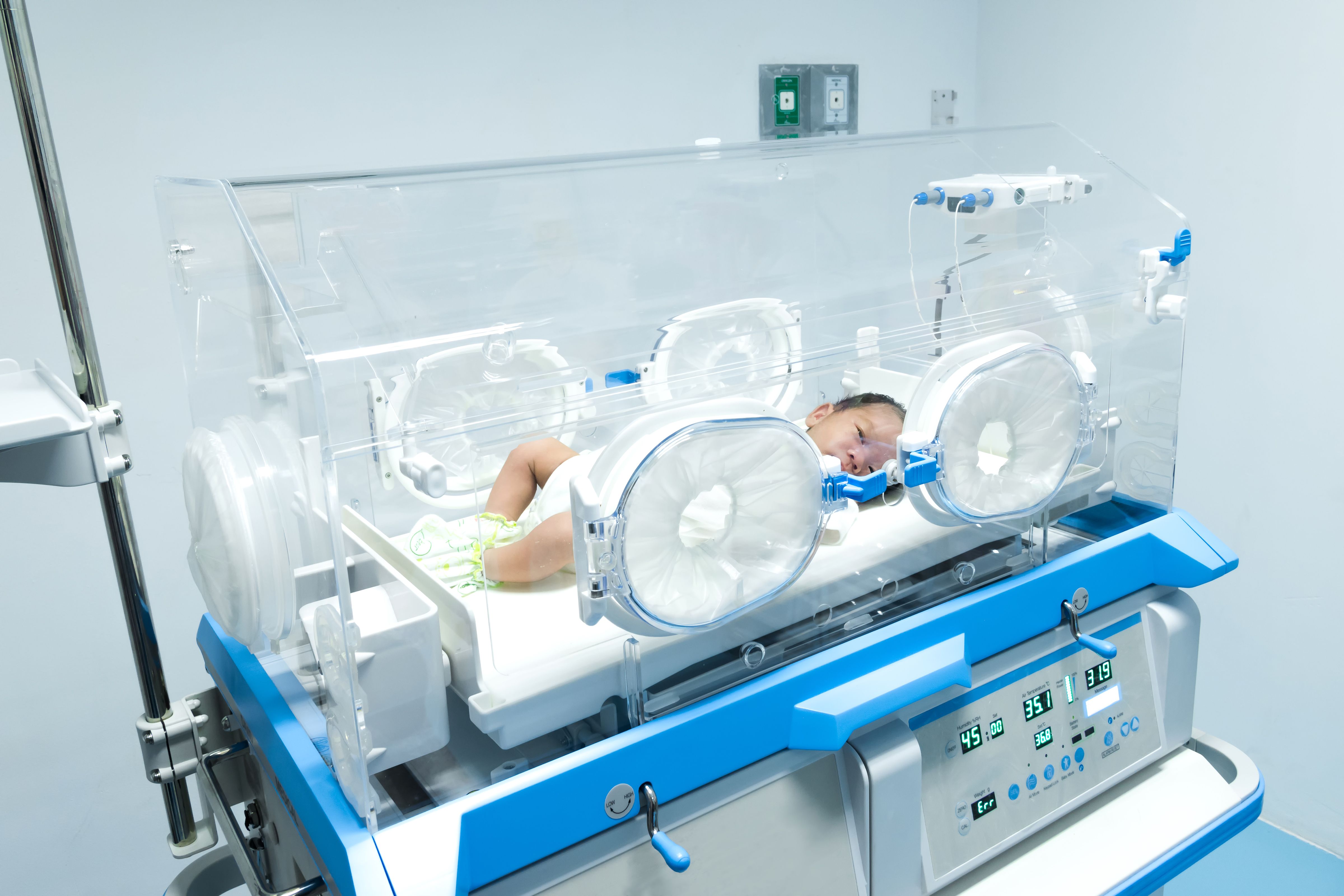
Incorporating Weight and Force Measurement in Incubators
The integration of advanced weight and force measurement technologies within incubators can significantly enhance their functionality, offering the following benefits:
Data-Driven Care: Sophisticated sensors can provide highly precise data on a baby's weight, a vital metric of health. Continuous monitoring enables healthcare providers to track growth patterns and respond swiftly to any concerning changes, supporting personalised care.
Enhanced Safety Measures: The use of our sensors to detect subtle movements and changes in position can offer additional safety. Alert mechanisms can be triggered if any unusual activity occurs, giving caregivers immediate insight into potential issues.
Integration with Other Systems: Weight and force measurement technologies can be seamlessly integrated with other monitoring systems within the incubator, such as temperature and humidity control. This unified approach ensures a consistent and controlled environment, vital for the baby's wellbeing.
Compliance and Record Keeping: Accurate data recording is essential in medical environments, supporting compliance with stringent regulatory guidelines and creating a comprehensive record of the baby's health and development. Weight and force sensors contribute to this by offering reliable and precise data logging.
Customisation and Adaptation: The technology can be tailored to specific medical needs and scenarios, allowing for customised solutions that align with the unique requirements of different neonatal care settings.